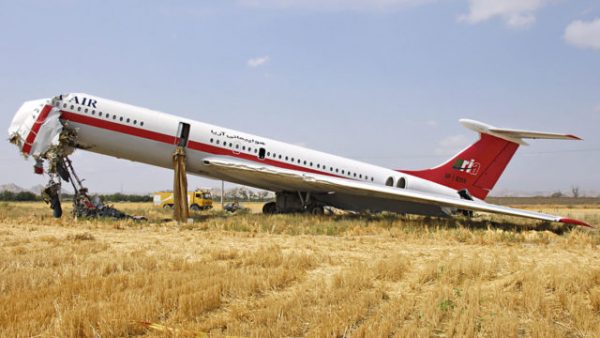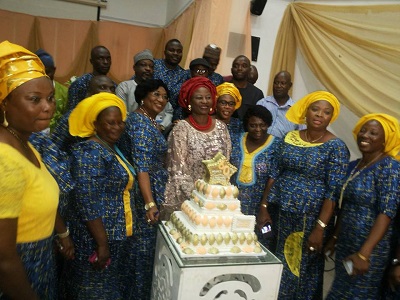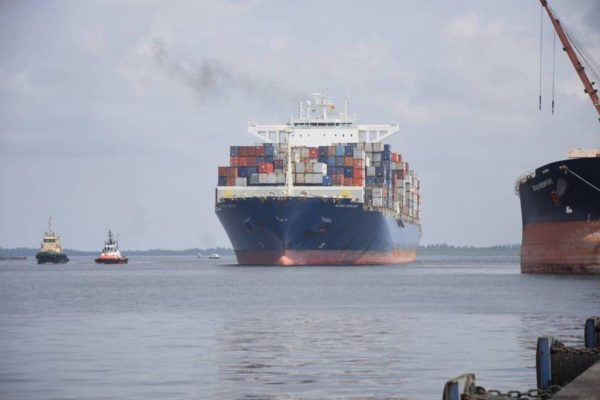Nigerian Ports: Resolving Infrastructural And Fiscal Challenges
 The challenges facing Nigerian ports are multifarious. The nation’s ports have been branded as too expensive, complicated, possessing too many agencies, etc., it has not been devoid of infrastructural challenges such as dilapidated port access roads and low draft of seaports. However, Nigeria still hopes to actualize the dream of being a global player in the port logistics chain and the hub of maritime activities in the West and Central Africa.
The challenges facing Nigerian ports are multifarious. The nation’s ports have been branded as too expensive, complicated, possessing too many agencies, etc., it has not been devoid of infrastructural challenges such as dilapidated port access roads and low draft of seaports. However, Nigeria still hopes to actualize the dream of being a global player in the port logistics chain and the hub of maritime activities in the West and Central Africa.
These various challenges were discussed extensively by the critical stakeholders in the maritime industry when they convened at a town hall meeting in Lagos, on “Cargo and Port Charges” organized by Business and Maritime West Africa magazine to dispassionately evaluate how far the country has gone in port operations and also to chart the way forward to enable the nation achieve its maritime potentials.
Highlighting one of the ways by which the port charges in Nigerian ports can be reduced, the Acting President of the National Association of Government Approved Freight Forwarders (NAGAFF) Chief Increase Uche called for the eradication of terminal charges at the nation’s ports.
Chief Uche stressed that most of Nigeria’s competitors in shipping have strategically cut-down their charges to increase the traffic at their various ports in order to lure cargo to their ports. He pointed out that the Ghanian Shippers’ Authority had scrapped the payment of terminal charges about few years ago.
Similarly, a Council member of the Lagos State Chamber of Commerce and Industry(LCCI), Dr. Ikenna Nwosu lamented that shipping companies in Nigeria do not work all day as observed in other countries. He also queried shipping companies for observing all public holidays, religious breaks and not functioning on Sundays when they also collect demurrages on these days.
Dr. Ikenna also noted that the charges to register products at the National Agency for Food, Drug, Administration and Control (NAFDAC), was too expensive and it has become an impediment to trade. He also reechoed the complaints that the penalties for minor issues with NAFDAC and SON had become very outrageous in recent times.
The Executive Secretary, Nigerian Shippers’ Council, Barr Hassan Bello, also identified some factors mitigating port reform as inadequate infrastructure, inadequate plants and equipment, lack of power supply, dilapidated port access roads causing gridlock, among others, are needed to be given immediate attention.
The Assistant Director, Compliance, Monitoring and Enforcement, Mrs. Celine Ifeora, who represented the Executive Secretary also explained that the delay of an economic regulator made it difficult for Nigerians and Stakeholders to fully enjoy the gains of port concession.
“The Nigerian Shippers’ Council was appointed the economic regulator in February 2014 to regulate and control the development and conducts of all economic activities in Nigerian ports which include to control tariff, rates and charges and to improve operational efficiency, to encourage competition, etc.
He explained that regulation in the port sector entails controlling the port sector entities by rules or regulations issued by government, to instill orderliness, reduce port cost and improve service delivery.
“In a liberalized industry like our ports, the role of an economic regulator is crucial in protecting and ensuring a level playing field for all stakeholders.
The regulator must therefore be allowed to act independently from any market interest when making regulatory decisions.
“What is important in this regard is the need for the regulator to adhere to consultations and best practices in decision making. The regulator needs the backing, support, by-in, of all stakeholders because the regulator cannot do it alone. This is a clarion call for industry Stakeholders’ to join hands with the regulator to make the port industry greater than ever”, Bello said.
In his remarks, the convener of the meeting and Publisher of Business and Maritime West Africa, Mr. Okey Ibeke noted that in the absence of a well-articulated evaluation of the challenges facing the industry, every initiative and measure to reverse the trend have been knee-jerk reactions.
The latest, he observed in the series of such measures is the December 2016 decision to ban the importation of vehicles through the land borders.
“As sound as the basis for the action may be, it is fraught with a lot of loopholes as generally patronage for goods and services cannot be legislated and sustained. It is time for us to reflect passionately beyond the usual simplification of the problems confronting Nigerian ports.
“Of course, the cost of cargo and terminal handling charges is one of the factors, but without holding brief for the private terminal operators, it does not explain the preference for ports in neighbouring countries.
Ibeke wondered if it was all about the import duties and other taxes paid in our ports, asking rhetorically what economic sense would lead an importer to incur double costs by deciding to divert goods destined for Nigeria through other neighbouring ports like Cotonou Port in Benin Republic?
Speaking from the terminal operators’ perspective, the Chief Operating Officer of Ecomarine Terminals, Mr. Dayo Balogun lamented that some of the factors that led to the throughput projections have not been provided.
According to Mr. Balogun, the major problem in the port sector has been the lack of political will to do what is right on the part of government regulatory agencies.
“The lack of political will and institutional weaknesses have been the major challenges in this maritime industry. Those empowered to carry out certain crucial functions don’t seem to be strong enough to really exercise those powers and there are no clear-cut mandates for these agencies” Balogun said.
Mr. Balogun lamented that there is a general tendency to benchmark the activities of terminal operators with what happens in Lagos.
“Since the concession in 2007, the first thing we did in Calabar was to invest massively in brand new cargo handling equipment because we recognized the need to improve on the facilities at that time to carter for more traffic following the dredging, but the agreement we signed says that NPA must maintain a channel of 9.4meters but 10 years after, the draft of the channel is 6.4meters and some of those equipment we bought haven’t lifted a single container since 2007”, he said.
In order to address issues raised in the nation’s port the proposed National Transport Commission should be set up, there would be need for an ad-hoc committee to verify and fine tune the current cargo handling practices and charges adopted by terminal operators.
All seaports terminal operators should provide the required infrastructure as negotiated under the concession agreements or a new agreement could be reached to enable the concessionaires meet their projections.
Extortion by the field staff of government agencies in spite of all official payments for relevant services having been made, must be checkmated; and as done in Ghana in August 2016, Nigeria must immediately stop the practice of shipping companies and terminal operators invoicing consignees for Terminal Handling Charges (THC).
Policy makers and shipping services providers would also have to reach a consensus on the factors responsible for shippers’ preference for the ports of neighbouring countries and resolve these issues.








